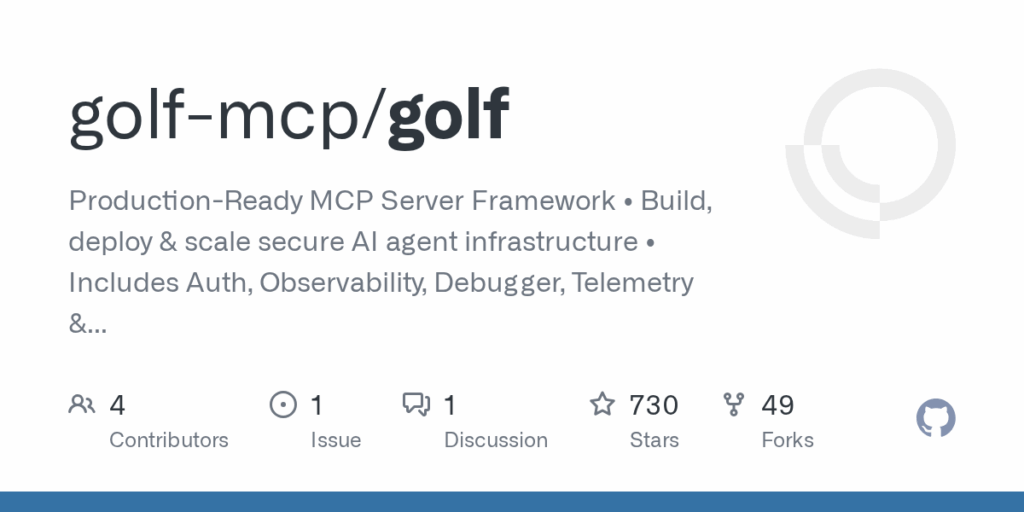Features
Automatic discovery and compilation of components organized under tools/, resources/, and prompts/ with module docstrings used as descriptions and Pydantic models and function signatures inferred for schemas. A CLI with commands like golf init, golf build dev, and golf run to scaffold projects and start a FastMCP development server. Configurable golf.json supporting transports (sse, streamable-http, stdio), host/port, stateless HTTP sessions, health check endpoints, and OpenTelemetry tracing. Built-in health check route generation, OpenTelemetry instrumentation with exporter selection, configurable telemetry with opt-out and persistent preference storage, and simple auth configuration via an auth.py file. Example tool patterns, export entry point convention, support for nested component directories, and guidance for sharing common code in subdirectories.
Use Cases
Golf accelerates building and iterating on MCP servers by removing repetitive server wiring and exposing a clear project structure that maps code files to runtime components. Developers can scaffold projects and run a local FastMCP server quickly, letting them concentrate on implementing tool logic, prompts, and resource access rather than transport or lifecycle concerns. The framework"s configuration options enable realistic development and production setups with selectable transports, health checks for orchestration, and OpenTelemetry support for observability. Telemetry is collected anonymously with easy opt-out to respect privacy. The component discovery, Pydantic integration, and CLI workflow make it easier to maintain, test, and evolve agent infrastructure in teams, and the roadmap indicates upcoming deploy and token management features.








